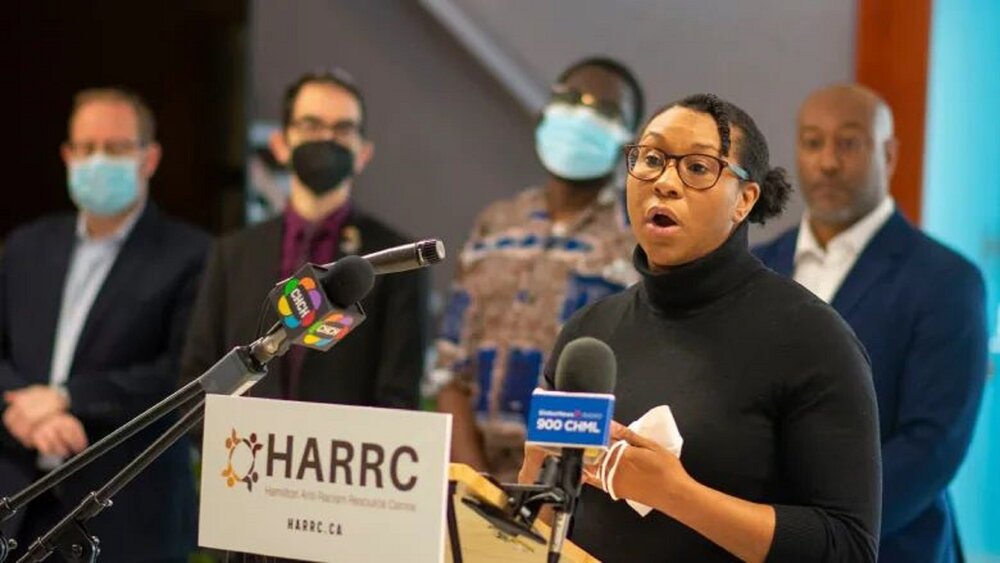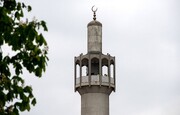Hawzah News Agency – Hate-crime numbers in Hamilton hit their highest level in 2021 since 2012, according to new police data.
The Hamilton Police Service recorded 21 hate crimes last year — more than 2019, 2018 and 2017 combined.
Police also reported 108 hate incidents last year (87 of which weren't crimes), a 35 per cent increase from 2020, but average when compared to past years.
"The increase is worrisome," said Pat Mandy, chair of the police board and member of Mississaugas of the Credit First Nation, during a Thursday afternoon meeting.
Mandy and Acting Det. Fabiano Mendes both said the numbers are likely underreported because not everyone approaches police with hate crimes and incidents.
Mendes said the rise in hate incidents and crimes in Hamilton is part of a broader trend across Canada. New data from Statistics Canada show the number of hate crimes reported to police across the country went up 37 per cent in 2020.
He pointed to other circumstances, like the pandemic, the Israeli-Palestinian conflict, an increase in alt-right ideologies and the "senseless killing" of a Muslim family in London, Ont., last year.
Hamilton has wrestled with a reputation for hate. Statistics Canada data indicates it had the country's highest per-capita rate of hate crimes in 2019, 2018, 2016 and 2014.
Black, Jewish, Muslim, LGBTQ people targeted most
Almost all reported local hate crimes and incidents last year in Hamilton targeted Black, Jewish, Muslim and LGBTQ communities.
Of those, 49 involved racial bias, 38 involved religion, 19 involved sexual orientation and two involved gender identity.
The police report shows there were 36 incidents targeting Black people, 24 targeting Jewish people, 14 targeting Muslim people and 19 targeting gay people.
Those numbers indicate a sharp rise in incidents toward the Muslim community and gay people when considering there was just one reported incident toward Muslims in 2020 and two reported anti-gay incidents the previous year.
The statistics show other groups targeted include:
- East and South East Asian people (three incidents).
- South Asian people (eight incidents).
- White people (one incident).
- Indigenous people (one incident).
- Other race (one incident).
- Transgender people (two incidents).
The data comes as police are establishing a Hate Crime Case Review Team. The police service is holding meetings with community groups to form the team, which will develop recommendations to improve outcomes for victims of hate crimes.
Police Chief Frank Bergen encouraged citizens to report any incidents they may witness.
Local calls for tougher hate crime legislation grow, march planned
The police statistics were released following outcry over a Confederate flag sighting in Binbrook that caught the attention of anti-hate groups and has prompted a "community walk" in Binbrook planned for Saturday afternoon.
"Why would anybody think it's acceptable?" Amie Archibald-Varley, the resident who first publicly raised concerns about the racist flag and is organizing the walk, previously told CBC News.
Police said they couldn't lay charges or have the owner remove the flag because it's legal to fly it on private property.
Last summer, Hamilton city councillors voted to ban the flag and the Nazi swastika from city property, labelling them as hate symbols.
The sighting prompted Mayor Fred Eisenberger to say he would move a motion in city council to request that the provincial and federal government take action to ban symbols like the Confederate flag.
Eisenberger and Archibald-Varley joined community groups and local rabbis at city hall on Friday to call for tougher laws.
"I had to explain racism to my children at seven and 10 years old ... I even had my daughter ask me this morning, 'Why do people hate us because of the colour of our skin?'" Archibald-Varley said.
The group of community leaders voiced support for Bill C-229, a private member's bill that would codify hate symbols — like flags — into existing legislation and make it easier for police to take action.
"The [hate crime] data can't speak to the trauma, doesn't hold individuals accountable — that's why we need legislation to hold individuals accountable," said Lyndon George, executive director of the Hamilton Anti-Racism Resource Centre.
Kojo Damptey, executive director of the Hamilton Centre For Civic Inclusion, said the city should impose a bylaw to ban hate symbols on private property, in addition to the existing bylaw that bans hate symbols on city-owned land.
Eisenberger said he's unsure if the city could impose that bylaw or if it would even be enforceable.
Some also shared their own experiences with racism and their thoughts on the Confederate flag sighting.
"Just yesterday we commemorated Holocaust Memorial Day — for those that know history, it all starts with rhetoric and symbols and if we don't stop at the points of rhetoric and symbols, we've lost this game," said Rabbi Daniel Green, with the Adas Israel Congregation in Hamilton.
Rabbi Hillel Lavery-Yisrareli with Hamilton's Beth Jacob Synagogue told reporters his family was heckled on the weekend for being visibly Jewish.
He said Black, Indigenous, queer, Muslim, Jewish, Hindu, Sikh people and immigrants do not feel safe in Hamilton, calling it "a mark of shame."
He said it's everyone's responsibility to work together to change that.
"There can be nothing more urgent, no cause cause more worth investing money, time, effort and education in," Lavery-Yisrareli said.



Your Comment